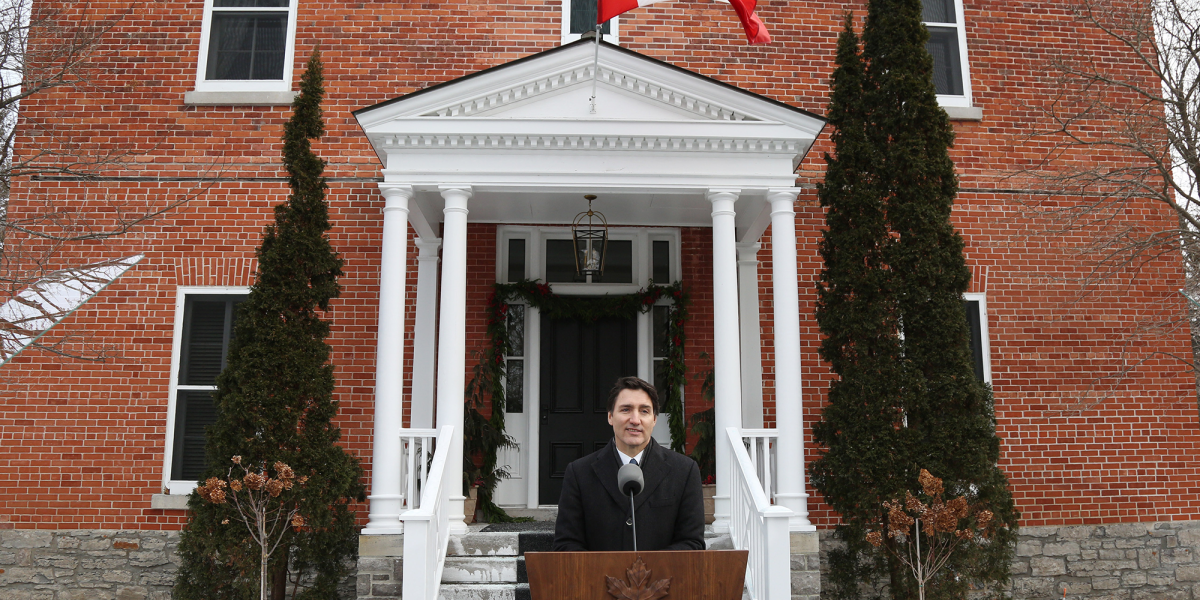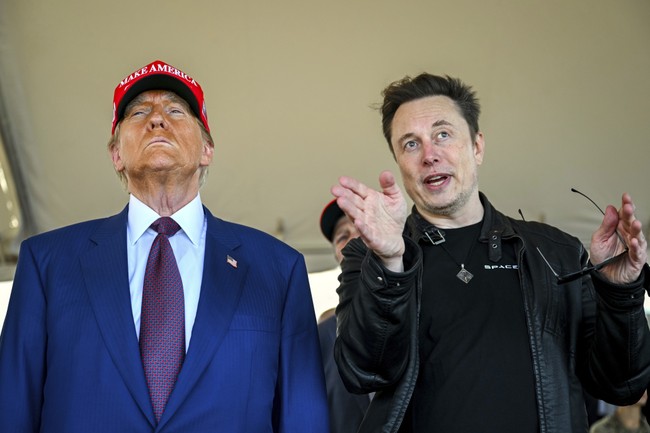Trump's Bold Move: Annexation or Strategy?
Explore the heated debate between Trudeau and Trump over Canada's potential annexation and the implications of economic threats on international relations.
Published January 11, 2025 - 00:01am

Image recovered from eleconomista.com.mx
The concept of Canada becoming the 51st state of the United States has recently resurfaced, causing a stir across both governments. Standing in opposition to this notion, Canadian Prime Minister Justin Trudeau firmly dismissed any potential for such a geopolitical shift, stating in unequivocal terms that Canada would never succumb to threats, referencing a proposal by then-President Donald Trump to utilize 'economic force' instead of military might.
The exchange unfolded against a backdrop of complex trade relations, where Trump voiced longstanding grievances about the trade surplus Canada maintains with the U.S. He described the U.S.-Canada border as 'artificial,' suggesting economic tactics rather than military force to adjust the relations, an approach that was not well received by the Canadian leadership.
Trudeau highlighted that Canada and the United States enjoy a symbiotic trade relationship, each being the largest trade partner of the other. In response to Trump's rhetoric, Trudeau stressed the intrinsic strength and sovereignty of Canada, as echoed by Foreign Minister Melanie Joly, who criticized Trump's comments as revealing a 'complete lack of understanding' of Canada's position as a strong nation.
The notion of annexation also made its way into private discussions when Trudeau visited Trump at his Mar-a-Lago estate. During a conversation about annexation, which transitioned into a light-hearted banter over potentially trading U.S. states for parts of Canada, it became apparent to Trudeau that the discussion carried strategic undercurrents. He suggested Trump's remarks on annexation might serve as a distraction from the proposed introduction of heavy tariffs on Canadian imports.
Tariff threats form a significant aspect of Trump's economic strategy. He vowed to impose a 25% tariff on Canadian imports unless Canada improved its border security and reduced illegal drug flow, particularly fentanyl, a point of contention keenly felt in U.S. politics. Such economic policies have led to fears of rising consumer costs in the United States, as pointed out by Trudeau, warning that increased tariffs would similarly inflate prices for American consumers who rely on Canadian goods.
These ongoing discussions hold immense political weight. Trudeau, already grappling with declining popularity and mounting political challenges, recently announced his resignation, a development partly linked to Canada's economic conditions under pandemic-induced constraints and competition from conservative forces led by Pierre Poilievre.
Trump, on the other hand, utilized social forums to promote his narrative. Following Trudeau's resignation announcement, Trump amplified his 51st state proposal, asserting that many Canadians desired closer ties with the U.S. due to perceived economic benefits and enhanced security against international threats from nations like Russia and China.
The landscape of U.S.-Canada relations remains dynamic and multifaceted, as both leaders face considerable domestic challenges, from criticism of political measures during the pandemic to navigating complex international trade agreements like NAFTA. The overarching spotlight on tariffs and annexation, therefore, signals not just economic ramifications but also a nuanced political strategy with global implications.
With trade being a pillar of Canada-U.S. relations, any disruptive economic policy posed by the U.S. could have severe implications, presenting significant diplomatic hurdles that demand diplomatic finesse and strategic negotiation from both sides. As these negotiations unfold, the world watches closely, and the political fate of North American relations continues to capture international attention.





